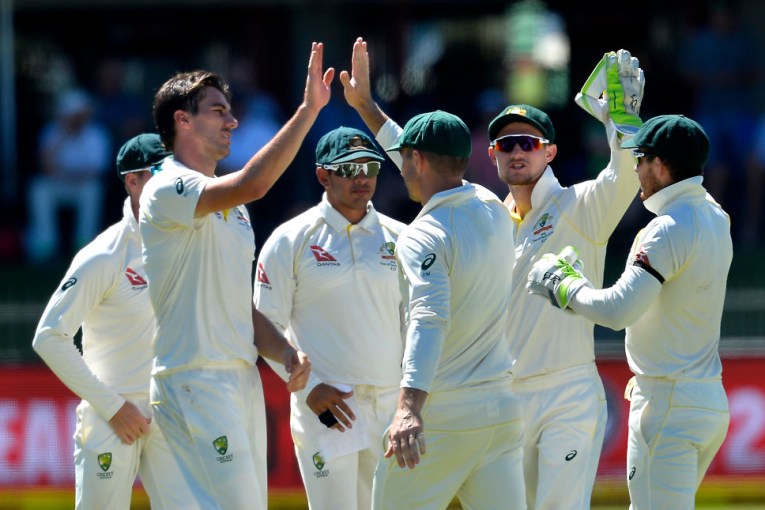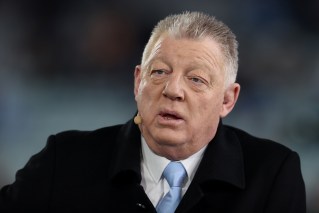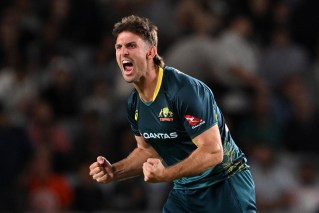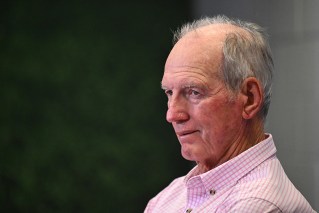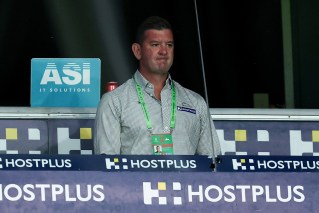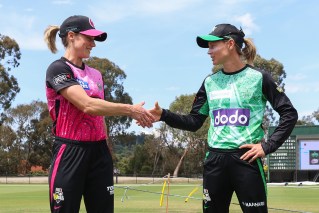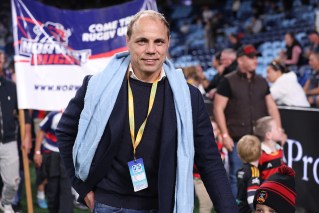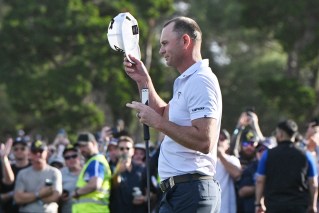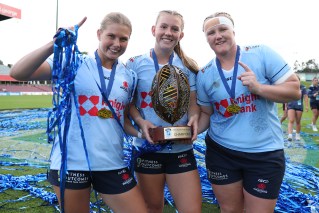Virus concerns linger as delayed Euro 2020 kick-off looms
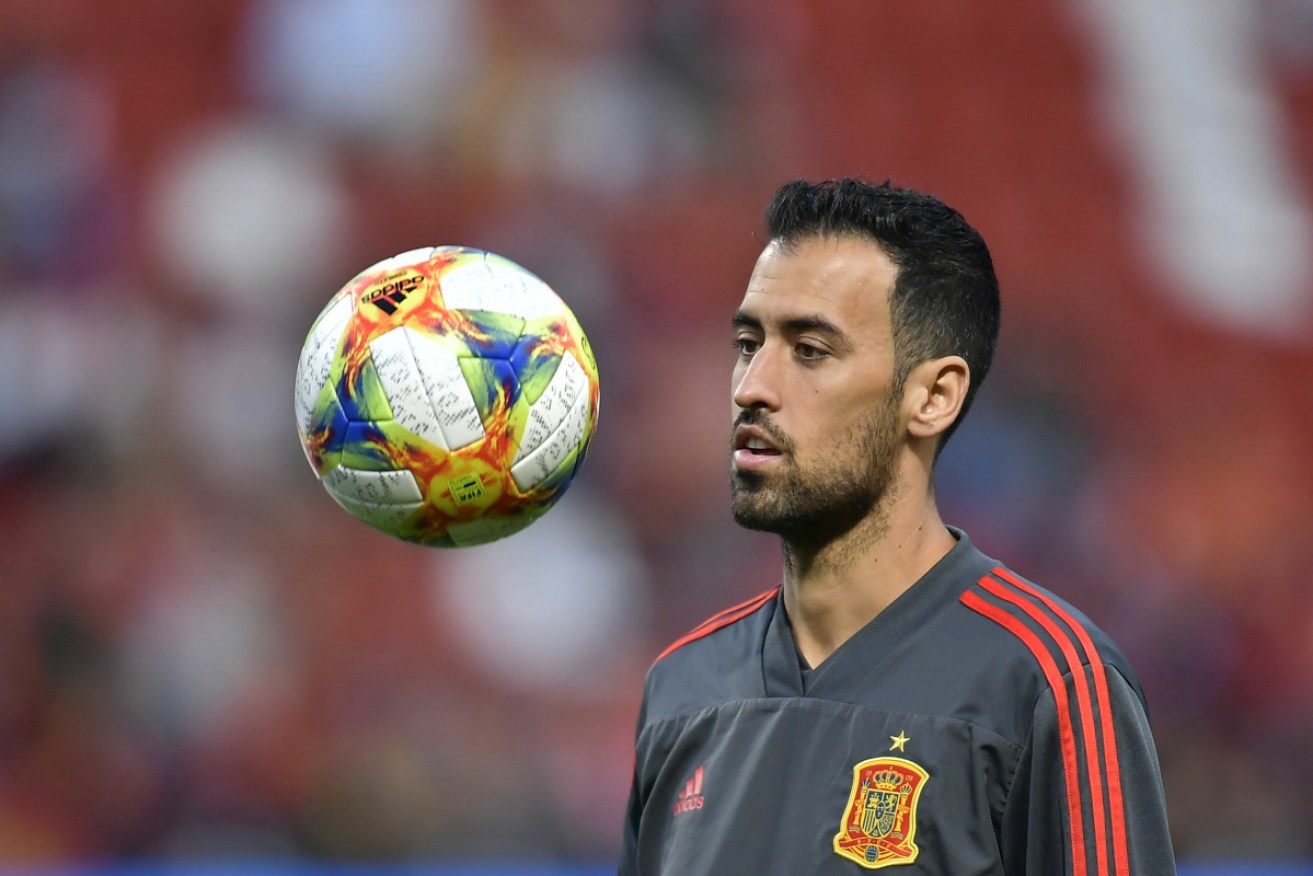
Spain's Sergio Busquets remains in doubt for the European championships after a positive COVID test. Photo: AP
The European championships kick off on Friday in Rome after a one-year delay owing to the coronavirus pandemic which still looms large over the soccer showpiece.
Hosting it in various cities across Europe was a logistical challenge from the outset – the brainchild of former UEFA boss Michel Platini who wanted to celebrate the 60th anniversary of the Euros by bringing games to many countries and fans.
The pandemic has added to the headaches, with Bilbao and Dublin dropped as hosts as Seville replaced the former and Dublin’s games went to Wembley and St Petersburg, meaning that the tournament takes place in 11 instead of 12 cities.
Strict Scottish virus rules have stopped Croatia and the Czech Republic from setting up base camps there, fearing team quarantines should just one member test positive.
⚽️👀 What's YOUR Goal of the Tournament from EURO 2016?
🇫🇷 Dimitri Payet
🏴 Hal Robson-Kanu
🇨🇭 Xherdan Shaqiri
🇵🇹 Cristiano Ronaldo#EUROGOTT | @GazpromFootball pic.twitter.com/t6G6FLINTW— UEFA EURO 2024 (@EURO2024) June 8, 2021
Spain captain Sergio Busquets is a major doubt after testing positive for the virus last weekend, while others like Germany midfielder Toni Kroos have only just overcome an infection.
UEFA postponed the event last year and has strict regulations this time around, with teams having to play as long as they have 13 healthy players, but postponements also possible for at least 48 hours.
It is also accommodating the 24 teams by allowing them squads of 26 instead of 23 players, and five substitutions per game.
Fans are to be present at every venue, from a planned full house in Budapest to 14,000 in Munich.
“I am really pleased that we are able to welcome spectators at all matches for a celebration of national team football across the continent,” UEFA president Aleksander Ceferin said recently.
Germany coach Joachim Loew agreed, saying: “We have experienced empty stadiums for long enough.”
🎟️ There are a limited number of tickets on sale to the general public for the following matches:
🇷🇴 Bucharest: AUT v MKD (13 June)
🏴 Glasgow: CRO v CZE (18 June)
🇮🇹 Rome: ITA v WAL (20 June)
🇷🇺 St Petersburg: FIN v BEL (21 June)
#LiveItForReal #EURO2020— UEFA EURO 2024 (@EURO2024) June 7, 2021
Fans and teams will face strict safety and hygiene protocols at the June 11-July 11 event with matches also in Amsterdam, Baku, Bucharest, Copenhagen and Glasgow.
Italy and Turkey begin the action but most early attention will be on Group F, which features Cristiano Ronaldo’s Portuguese title holders, world champions France with the likes of Kylian Mbappe, Germany with its departing World Cup-winning coach Loew, plus underdogs Hungary.
Only the top two from each of the six groups are guaranteed a place in the last 16, but the four best third-ranked teams also advance into the knock-out stages.
Loew has recalled Thomas Mueller and Mats Hummels, while France coach Didier Deschamps has brought back Karim Benzema, which adds considerably to Les Bleus’ attacking power that also features Mbappe and Antoine Griezmann.
France lost the 2016 final to Portugal at the Stade de France but like in 2000 now wants to add the Euro title to that from the World Cup two years earlier.
World rankings leader Belgium with its abundance of talent ranging from Kevin de Bruyne to Romelu Lukaku; and Gareth Southgate’s England boasting Harry Kane, Phil Foden and Jadon Sancho are also contenders.
World Cup runners-up Croatia, with veteran playmaker Luka Modric, Spain without long-time captain Sergio Ramos but with youngster Pedri, and a new-look Italy are others to watch.
Sweden, meanwhile, has to do without icon Zlatan Ibrahimovic, and the Dutch are without Virgil van Dijk, both for injury reasons.
First-timers, but also with ambitions, are Finland and North Macedonia; while goals from World Footballer of the Year Robert Lewandowski may not be enough to carry Poland all the way to the final at Wembley, which also hosts both semi-finals.
-AAP
